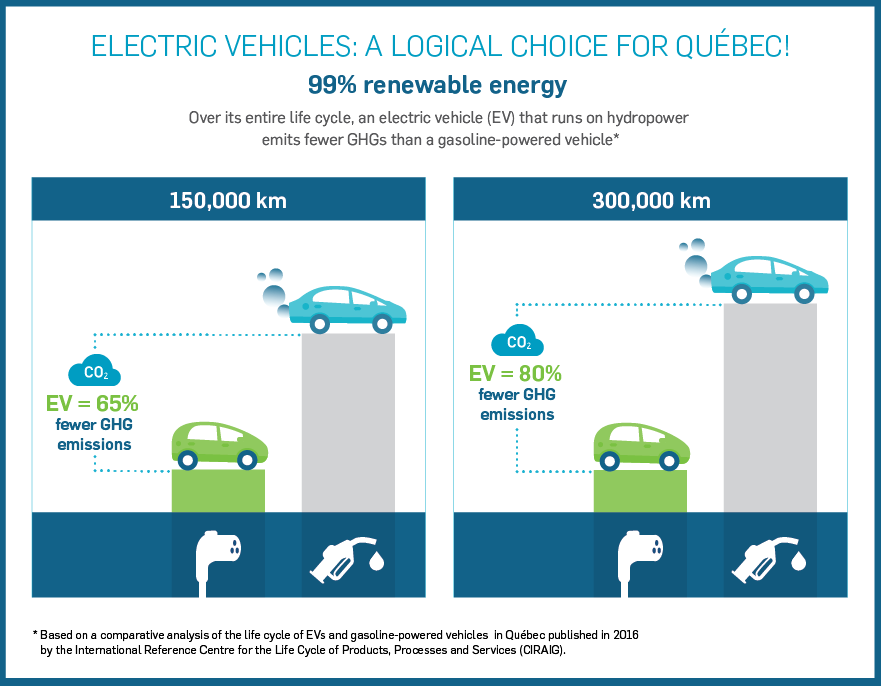Electric vehicles and the environment
Is the manufacture and use of electric vehicles less harmful to the environment than gas-powered vehicles?
At the request of Hydro-Québec, CIRAIG (International Reference Centre for the Life Cycle of Products, Processes and Services) conducted a comparative life cycle assessment of both electric and gasoline-powered vehicles under the conditions found in Québec.
The goal was to determine the degree to which the use of an electric vehicle powered by electricity generated in Québec can be environmentally beneficial compared to a conventional vehicle.
The potential impacts were assessed based on indicators of human health, ecosystem quality, climate change, fossil resource depletion and mineral resource depletion.
Comparison of electric vehicles and conventional vehicles in the Québec context
